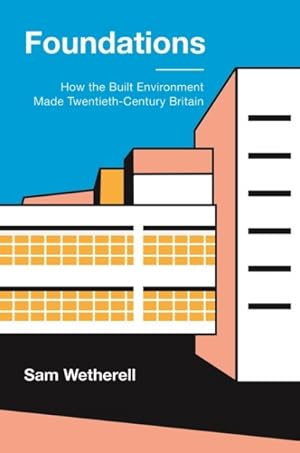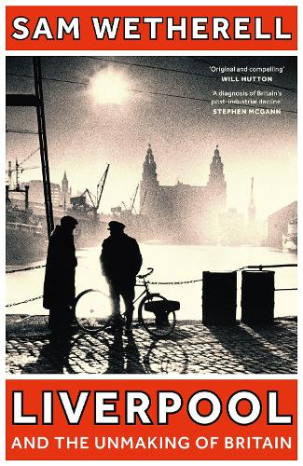Sam Wetherell
Senior Lecturer in the History of Britain and the World
Visit Sam Wetherell's profile on the York Research Database to:
- See a full list of publications
- Browse activities and projects
- Explore connections, collaborators, related work and more
Profile
Biography
Sam Wetherell is a Senior Lecturer in the History of Britain and the World. Before arriving at York, Sam completed his PhD at the University of California, Berkeley, and spent a year as a visiting lecturer at Columbia University.
Sam specialises in urban history, decolonisation and histories of culture and art-making. His first book, ‘Foundations: How the Built Environment Made Twentieth-Century Britain’ (2020) tells the story of how twentieth century British politics was shaped by the everyday spaces where people live, work and shop. His second book ‘Liverpool and the Un-Making of Britain’ is a new history of Britain told through the city of Liverpool focussing on decolonisation, urban and environmental collapse, radical political movements and public health. He has also published articles about the history of community arts, the development of neoliberal urban policy in Britain and the United States and the history of how cities have responded to some of the environmental challenges of deindustrialisation.
A collection of Sam’s academic and non-academic writings on culture and politics can be found on his website www.samwetherell.com He welcomes interest from undergraduate and graduate students who work on modern urban history, black British history and British environmental history.


Research
Overview
Sam’s most recent book, ‘Liverpool and the Un-Making of Britain’ (2025) is a rich history of Liverpool since 1945 published as a trade book by Bloomsbury. It focusses in particular on the city’s Black history, the effects of deindustrialization and the ways that the city became a laboratory for urban regeneration from the 1980s. The book is organised around the theme of “obsolescence,” and is influenced by theorists of racialisation and the management of surplus populations that have so far mainly focussed on histories of the US or the global south. It makes the argument that our present political moment demands different ways of writing about the twentieth century. The book argues that Liverpool, seen for so long as exceptional to the rest of Britain, is where we need to look to tell a new kind of history of Britain.
Sam’s first book, ‘Foundations: How the Built Environment Made Twentieth-Century Britain’ – was published in 2020 with Princeton University Press. ‘Foundations’ tells the story of modern Britain through the transformation of its built environment focusing on housing, workplaces and spaces of shopping and consumption. It shows how enclosed wholesale markets became out of town shopping malls, how philanthropic and later modernist council estates became private gated communities and how government-backed backed industrial estates became suburban office parks. Along the way the book charts the rise of a mid-twentieth century development state and how it came to be displaced by a new, market-driven neoliberal settlement in the last third of the twentieth century. This project has spawned a number of journal articles. Sam’s essay, “Freedom Planned: Enterprise Zones and Urban Non-Planning in Post-war Britain” won the Duncan Tanner prize for the best article by a PhD student for the journal Twentieth Century British History. His 2020 article “Redlining the British City” about race and housing in postwar Britain was published in Renewal. Finally, his article “Sowing Seeds: Garden Festivals and the Remaking of British Cities and Deindustrialization”, a cultural history of one of the strangest attempts to solve the economic and environmental problems of deindustrialisation in Britain, was published in 2021 in the Journal of British Studies.
Sam has also been working on a trilogy of articles about culture and art-making in postwar Britain. The first of these – about community arts in the 1970s and 1980s – was published in History Workshop Journal and there are articles about the history of the “creative economy” and prison arts currently being written.
Teaching
Undergraduate
An example of modules taught:
- HIS00145H Work
- HIS00165H Black British History and Decolonisation
- HIS00152I Containing Multitudes: Inequality and the City in Britain and its Empire post-1800
Postgraduate
Contact details
Student hours


